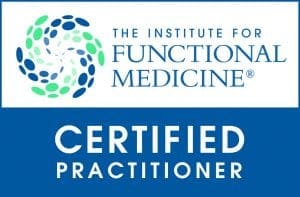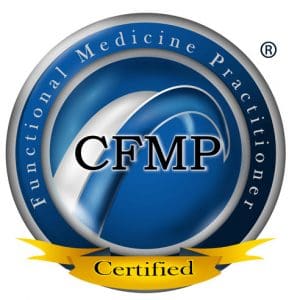Understanding the connection between auto injuries and rotator cuffs is crucial. Discover prevention and recovery options today.
Table of Contents
Shoulder Pain and Injuries in Motor Vehicle Accidents: A Comprehensive Guide
Introduction
Picture this: you’re driving along, minding your own business, when suddenly—bam!—a car rear-ends you. Your body lurches forward, your hands grip the steering wheel like it’s your lifeline, and your shoulders take the hit. Congratulations, you’ve just earned the dubious honor of shoulder pain, a badge that says you survived a motor vehicle accident (MVA). But let’s be honest, it hurts like nobody’s business. Shoulder pain is a common complaint after MVAs, often overshadowed by more talked-about injuries like whiplash or back pain. Yet, the shoulders can suffer significantly, leading to pain, restricted movement, and long-term complications if not addressed properly.
In this comprehensive guide, we’ll dive into the clinical reasons why shoulder pain and injuries are so common in MVAs, focusing on how these accidents affect the rotator cuff and contribute to ongoing issues. We’ll also spotlight the critical role of chiropractic care, particularly through the expertise of Dr. Alexander Jimenez, a distinguished chiropractor and nurse practitioner in El Paso, Texas. With his advanced diagnostic techniques and personalized treatment plans, Dr. Jimenez helps MVA victims recover while bridging the gap between medical care and legal needs in personal injury cases. So, buckle up (safely, of course) as we explore the science, the pain, and the path to recovery.
Section 1: The Prevalence of Shoulder Pain and Injuries in MVAs
Motor vehicle accidents are a leading cause of musculoskeletal injuries, and shoulder pain is a frequent complaint among those involved. Research indicates that shoulder injuries, particularly rotator cuff tears, are common in car accidents, especially rear-end collisions (El Paso Chiropractor Blog, 2016). The shoulder’s complex structure, which prioritizes mobility over stability, makes it highly susceptible to trauma during a crash.
Common Shoulder Injuries in MVAs
Shoulder injuries from MVAs can range from mild to severe, each with its own set of challenges. Here are the most common types:
| Injury Type | Description | Symptoms |
|---|---|---|
| Rotator Cuff Tears | Tears in the muscles or tendons stabilizing the shoulder joint are often caused by sudden trauma. | Severe pain, weakness, difficulty lifting the arm, limited range of motion. |
| Sprains and Strains | Stretching or tearing of ligaments (sprains) or muscles/tendons (strains) due to forceful impact. | Pain, swelling, stiffness, reduced mobility. |
| Fractures | Breaks in the clavicle, scapula, or humerus, typically from high-impact collisions. | Intense pain, swelling, deformity, inability to move the shoulder. |
| Dislocations | The shoulder joint’s ball is forced out of its socket, often due to violent motion. | Severe pain, visible deformity, limited movement. |
| Brachial Plexus Injuries | Damage to the nerve network in the shoulder, often from side-impact or rollover accidents. | Numbness, weakness, severe pain, or paralysis in the affected arm. |
These injuries can occur even in low-speed collisions, as the shoulder’s delicate structure is not designed to withstand sudden, forceful movements (Alexander Orthopaedics, 2023).
Why Are Shoulders So Vulnerable?
The shoulder is a ball-and-socket joint, offering the greatest range of motion in the body. This mobility comes at the cost of stability, making it prone to injury during MVAs. When a vehicle is struck, the body is subjected to rapid acceleration and deceleration forces. Instinctively, individuals brace themselves by gripping the steering wheel or dashboard, transferring significant force to the shoulders. This can lead to injuries like rotator cuff tears or dislocations, especially in rear-end or side-impact collisions (Atlanta Advocate, 2024).
Additionally, safety features like seatbelts and airbags, while lifesaving, can contribute to shoulder injuries. The sudden restraint of a seatbelt or the force of an airbag deploying can place additional stress on the shoulder joint, exacerbating the risk of injury.
Section 2: Clinical Rationale for Shoulder Pain and Injuries in MVAs
The clinical rationale for why shoulder pain and injuries are so prevalent in MVAs lies in the biomechanics of a collision and the body’s natural response to protect itself. When a car is involved in an accident, the body experiences rapid changes in velocity, resulting in significant stress on the musculoskeletal system. The shoulders, as a critical point of force distribution, often bear the brunt of this impact.
Biomechanics of MVAs
During an MVA, the body is subjected to sudden acceleration (forward motion) and deceleration (stopping abruptly). This can cause the head, neck, and upper body to move violently, but the shoulders play a pivotal role in absorbing and distributing the force. Here’s how:
- Bracing Reflex: As a collision looms, drivers and passengers often tense up and brace their hands against the steering wheel, dashboard, or other surfaces. This action transfers the force of the impact directly to the shoulders, which can lead to rotator cuff tears, sprains, or strains (El Paso Chiropractor Blog, 2016).
- Unnatural Joint Movement: The shoulder’s ball-and-socket design allows for a wide range of motion but is not built to withstand high-impact forces. Sudden movements can force the shoulder into unnatural positions, causing tears or dislocations.
- Force Distribution: In rear-end collisions, the body is thrust forward, and the shoulders may absorb the impact as the arms resist the motion. In side-impact or rollover accidents, the shoulder can be pushed downward while the neck tilts, increasing the risk of brachial plexus injuries (Atlanta Advocate, 2024).
Impact on the Rotator Cuff
The rotator cuff, comprising four muscles and their tendons, stabilizes the shoulder joint and enables arm movement. During an MVA, the sudden force can cause these tendons to stretch or tear, leading to significant pain and dysfunction. According to Mahaney & Pappas, LLP (n.d.), rotator cuff tears are a common injury in MVAs, often resulting from the bracing reflex during a collision. These tears can be:
- Partial Tears: The tendon is damaged but not completely detached, causing pain and weakness.
- Complete Tears: The tendon is fully detached from the bone, leading to severe pain and significant loss of function.
Rotator cuff tears can cause immediate symptoms like sharp pain, weakness, and difficulty lifting the arm. If untreated, they can lead to chronic pain and further joint degeneration.
Role of Safety Features
While seatbelts and airbags are critical for preventing severe injuries, they can inadvertently contribute to shoulder trauma. The seatbelt’s diagonal strap often crosses the shoulder, and during a crash, it can exert significant pressure, potentially causing bruising, sprains, or even fractures. Similarly, airbag deployment can push the shoulder backward, increasing the risk of dislocation or soft tissue damage.
Section 3: The Role of Shoulder Injuries in Developing Shoulder Pain and Rotator Cuff Issues
Shoulder injuries from MVAs can have a profound impact on daily life, leading to chronic pain and long-term complications if not addressed promptly. The rotator cuff, in particular, is a critical structure, and injuries to it can significantly impair shoulder function.
Symptoms of MVA-Related Shoulder Injuries
The symptoms of shoulder injuries from MVAs can vary depending on the severity and type of injury. Common symptoms include:
- Pain: Radiating pain along the top or outer sides of the shoulder, often worsening with movement or at night.
- Restricted Mobility: Difficulty lifting the arm, reaching overhead, or performing daily tasks like dressing or driving.
- Inflammation and Swelling: Visible swelling or warmth around the shoulder joint.
- Popping or Clicking: A sensation of instability or “catching” when moving the arm, indicating possible joint damage.
- Weakness: Reduced strength in the shoulder, making it hard to lift objects or maintain arm positions.
These symptoms can appear immediately after the accident or develop days to weeks later, as adrenaline and shock may mask initial pain (Addison Chiropractic and Sports Clinic, 2025).
Long-Term Effects on the Rotator Cuff
Rotator cuff injuries, if left untreated, can lead to significant long-term consequences:
- Chronic Pain: Persistent pain that interferes with sleep, work, and daily activities.
- Degenerative Changes: Untreated tears can lead to arthritis or rotator cuff arthropathy, a condition where the shoulder joint deteriorates over time.
- Functional Limitations: Reduced range of motion and strength can make it challenging to perform tasks such as lifting, reaching, or even combing hair.
- Increased Risk of Re-Injury: Partial tears, if not properly healed, are more susceptible to further damage, potentially requiring surgical intervention.
Early diagnosis and treatment are crucial for preventing these complications and restoring shoulder function.
Importance of Early Intervention
Seeking medical attention promptly after an MVA is critical, as delayed treatment can exacerbate injuries. Chiropractic care, physical therapy, and, in severe cases, surgical intervention can help address shoulder injuries and prevent long-term issues. Chiropractic care, in particular, offers a non-invasive approach to pain relief and recovery, making it an ideal option for many MVA victims.
Chiropractic Care After Accidents and Injuries- Video
Section 4: Dr. Alexander Jimenez’s Role in Treating Personal Injury Cases in El Paso
In El Paso, Texas, Dr. Alexander Jimenez stands out as a leading practitioner for victims of personal injury, particularly those injured in MVAs. With over 25 years of experience as a chiropractor and board-certified nurse practitioner, Dr. Jimenez brings a unique blend of expertise to his practice at Injury Medical & Chiropractic Clinic.
Comprehensive Diagnostic Approach
Dr. Jimenez utilizes advanced diagnostic techniques to assess MVA-related injuries accurately. These include:
- Imaging Studies: MRI and CT scans to visualize soft tissue damage, such as rotator cuff tears or ligament injuries.
- Dual-Scope Procedures: Combining chiropractic and medical diagnostics to provide a comprehensive view of the injury.
- Clinical Evaluations: Thorough physical exams to assess range of motion, muscle strength, and neurological function.
These tools allow Dr. Jimenez to create personalized treatment plans that address the root cause of pain and promote long-term recovery.
Treatment Modalities
Dr. Jimenez’s treatment approach integrates chiropractic care with functional medicine, offering a holistic solution for MVA victims. Common treatments include:
- Chiropractic Adjustments: Realigning the spine and joints to reduce pain and improve mobility.
- Manual Therapy: Techniques like soft tissue massage and trigger point therapy to alleviate pain and inflammation.
- Rehabilitative Exercises: Targeted exercises to strengthen the shoulder muscles and restore function.
- Nutritional Counseling: Guidance on diet and supplements to support healing and overall wellness.
These non-invasive methods help patients recover without relying on surgery or long-term medication use (Injury Medical & Chiropractic Clinic, n.d.).
Liaison Between Medical and Legal Services
In personal injury cases, accurate documentation is crucial for legal claims. Dr. Jimenez’s dual licensure as a chiropractor and nurse practitioner allows him to provide detailed medical reports that support patients’ claims. He acts as a liaison between medical care and legal documentation, ensuring that patients receive the necessary treatment while their injuries are properly documented for insurance or legal purposes. This is particularly important in El Paso, where personal injury cases related to MVAs are common.
Why Dr. Jimenez Stands Out
Dr. Jimenez’s practice is distinguished by his patient-centered approach and commitment to integrative care. His clinic, Injury Medical & Chiropractic Clinic, specializes in treating severe pain conditions, including those caused by MVAs. Patient testimonials highlight his dedication, with many praising his thoroughness and compassion (Yelp, 2016). His ability to combine biomechanical expertise with medical management makes him a trusted resource for MVA victims in El Paso.
Section 5: Conclusion
Shoulder pain and injuries from motor vehicle accidents are a significant concern, often resulting from the sudden forces that jolt the body during a collision. The rotator cuff, in particular, is highly vulnerable, and injuries to it can lead to chronic pain and long-term complications if not treated promptly. Chiropractic care, as exemplified by Dr. Alexander Jimenez in El Paso, Texas, provides a non-invasive and effective approach to managing these injuries, enabling patients to regain mobility and improve their quality of life.
Through advanced diagnostics, personalized treatment plans, and a unique ability to bridge the medical and legal needs of MVA victims, Dr. Jimenez provides comprehensive care. If you’ve been in a car accident and are experiencing shoulder pain, seeking prompt medical attention is essential to prevent long-term issues and ensure a full recovery.
Disclaimer: This blog post is intended for informational purposes only and should not be taken as medical advice. If you have been involved in a motor vehicle accident and are experiencing shoulder pain, please seek professional medical attention. The information provided here is not a substitute for a thorough medical evaluation and treatment plan tailored to your specific needs.
References
- Addison Chiropractic and Sports Clinic. (2025, May 9). Chiropractic Care for Shoulder Pain Relief After Car Accidents. Retrieved from https://addisonsportsclinic.com/chiropractic-care-for-shoulder-pain-relief-after-car-accidents/
- Alexander Orthopaedics. (2023, April 21). 5 Common Shoulder Injuries from a Car Accident. Retrieved from https://alexanderorthopaedics.com/blog/shoulder-injury-car-accident-treatment/
- Atlanta Advocate. (2024, October 29). Rotator Cuff and Shoulder Injuries After a Georgia Car Wreck: Your Legal Options. Retrieved from https://atlantaadvocate.com/legal-guides/car-accidents/shoulder-injuries/
- El Paso Chiropractor Blog. (2016, August). Rotator Cuff Tears Resulting from Auto Accidents. Retrieved from https://www.elpasochiropractorblog.com/2016/08/rotator-cuff-tears-resulting-from-auto.html
- Injury Medical & Chiropractic Clinic. (n.d.). Alex Jimenez DC, Injury Medical & Chiropractic Clinic. Retrieved from https://www.a4m.com/alex-jimenez-injury-medical-amp-chiropractic-clinic-el-paso-tx.html
- Mahaney & Pappas, LLP. (n.d.). Rotator Cuff Tears Suffered In Car Accidents. Retrieved from https://www.mahaneypappaslaw.com/library/rotator-cuff-tears-suffered-in-car-accidents.cfm
- Yelp. (2016, January 1). Alex Jimenez DC, Injury Medical & Chiropractic Clinic. Retrieved from https://www.yelp.com/biz/injury-medical-and-chiropractic-clinic-el-paso-6
General Disclaimer
Professional Scope of Practice *
The information herein on "Auto Injuries and Their Healing Process To The Rotator Cuffs" is not intended to replace a one-on-one relationship with a qualified health care professional or licensed physician and is not medical advice. We encourage you to make healthcare decisions based on your research and partnership with a qualified healthcare professional.
Blog Information & Scope Discussions
Welcome to El Paso's Premier Wellness and Injury Care Clinic & Wellness Blog, where Dr. Alex Jimenez, DC, FNP-C, a Multi-State board-certified Family Practice Nurse Practitioner (FNP-BC) and Chiropractor (DC), presents insights on how our multidisciplinary team is dedicated to holistic healing and personalized care. Our practice aligns with evidence-based treatment protocols inspired by integrative medicine principles, similar to those found on this site and our family practice-based chiromed.com site, focusing on restoring health naturally for patients of all ages.
Our areas of multidisciplinary practice include Wellness & Nutrition, Chronic Pain, Personal Injury, Auto Accident Care, Work Injuries, Back Injury, Low Back Pain, Neck Pain, Migraine Headaches, Sports Injuries, Severe Sciatica, Scoliosis, Complex Herniated Discs, Fibromyalgia, Chronic Pain, Complex Injuries, Stress Management, Functional Medicine Treatments, and in-scope care protocols.
Our information scope is multidisciplinary, focusing on musculoskeletal and physical medicine, wellness, contributing etiological viscerosomatic disturbances within clinical presentations, associated somato-visceral reflex clinical dynamics, subluxation complexes, sensitive health issues, and functional medicine articles, topics, and discussions.
We provide and present clinical collaboration with specialists from various disciplines. Each specialist is governed by their professional scope of practice and their jurisdiction of licensure. We use functional health & wellness protocols to treat and support care for musculoskeletal injuries or disorders.
Our videos, posts, topics, and insights address clinical matters and issues that are directly or indirectly related to our clinical scope of practice.
Our office has made a reasonable effort to provide supportive citations and has identified relevant research studies that support our posts. We provide copies of supporting research studies upon request to regulatory boards and the public.
We understand that we cover matters that require an additional explanation of how they may assist in a particular care plan or treatment protocol; therefore, to discuss the subject matter above further, please feel free to ask Dr. Alex Jimenez, DC, APRN, FNP-BC, or contact us at 915-850-0900.
We are here to help you and your family.
Blessings
Dr. Alex Jimenez DC, MSACP, APRN, FNP-BC*, CCST, IFMCP, CFMP, ATN
email: coach@elpasofunctionalmedicine.com
Multidisciplinary Licensing & Board Certifications:
Licensed as a Doctor of Chiropractic (DC) in Texas & New Mexico*
Texas DC License #: TX5807, Verified: TX5807
New Mexico DC License #: NM-DC2182, Verified: NM-DC2182
Multi-State Advanced Practice Registered Nurse (APRN*) in Texas & Multistate
Multistate Compact RN License by Endorsement (42 States)
Texas APRN License #: 1191402, Verified: 1191402 *
Florida APRN License #: 11043890, Verified: APRN11043890 *
* Prescriptive Authority Authorized
ANCC FNP-BC: Board Certified Nurse Practitioner*
Compact Status: Multi-State License: Authorized to Practice in 40 States*
Graduate with Honors: ICHS: MSN-FNP (Family Nurse Practitioner Program)
Degree Granted. Master's in Family Practice MSN Diploma (Cum Laude)
Dr. Alex Jimenez, DC, APRN, FNP-BC*, CFMP, IFMCP, ATN, CCST
My Digital Business Card
RN: Registered Nurse
APRNP: Advanced Practice Registered Nurse
FNP: Family Practice Specialization
DC: Doctor of Chiropractic
CFMP: Certified Functional Medicine Provider
MSN-FNP: Master of Science in Family Practice Medicine
MSACP: Master of Science in Advanced Clinical Practice
IFMCP: Institute of Functional Medicine
CCST: Certified Chiropractic Spinal Trauma
ATN: Advanced Translational Neutrogenomics




















